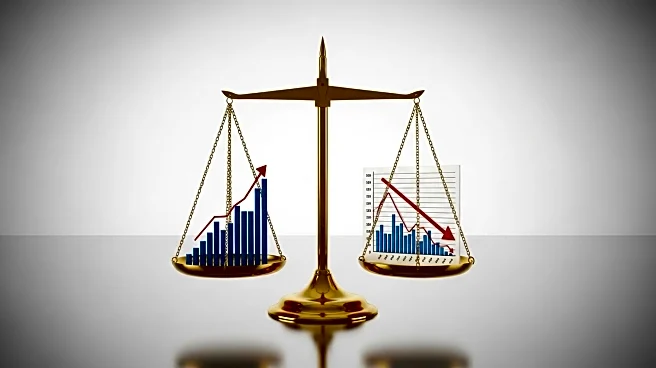What's Happening?
Americans have reached a record high in stock ownership, with stocks accounting for 45% of households' financial assets in the second quarter. This milestone is driven by the stock market's climb, increased participation in the market, and the popularity of retirement plans like 401(k)s. However, economists warn that this high level of stock ownership poses risks to personal finances, especially in an economy with a fragile labor market and persistent inflation. The concentration of stock ownership among a few large tech companies, known as the 'Magnificent Seven,' further exposes investors to potential market volatility.
Why It's Important?
The high level of stock ownership among Americans is significant as it increases the economy's vulnerability to market fluctuations. A downturn in the stock market could have widespread effects on personal finances and consumer spending, particularly among wealthier individuals who hold significant stock assets. The concentration of stock ownership in a few large companies also raises concerns about the potential impact of any negative developments in these firms. As the stock market becomes a larger driver of economic activity, the risks associated with high stock ownership become more pronounced.
Beyond the Headlines
The disparity between stock market gains and the stagnating job market highlights the growing economic divide in the U.S. While wealthier individuals benefit from stock market gains, lower-income Americans face increasing financial strain. This 'K-shaped economy' reflects broader societal challenges and underscores the need for policies that address economic inequality. The reliance on stock market performance to drive economic growth also raises questions about the sustainability of this model in the long term.










